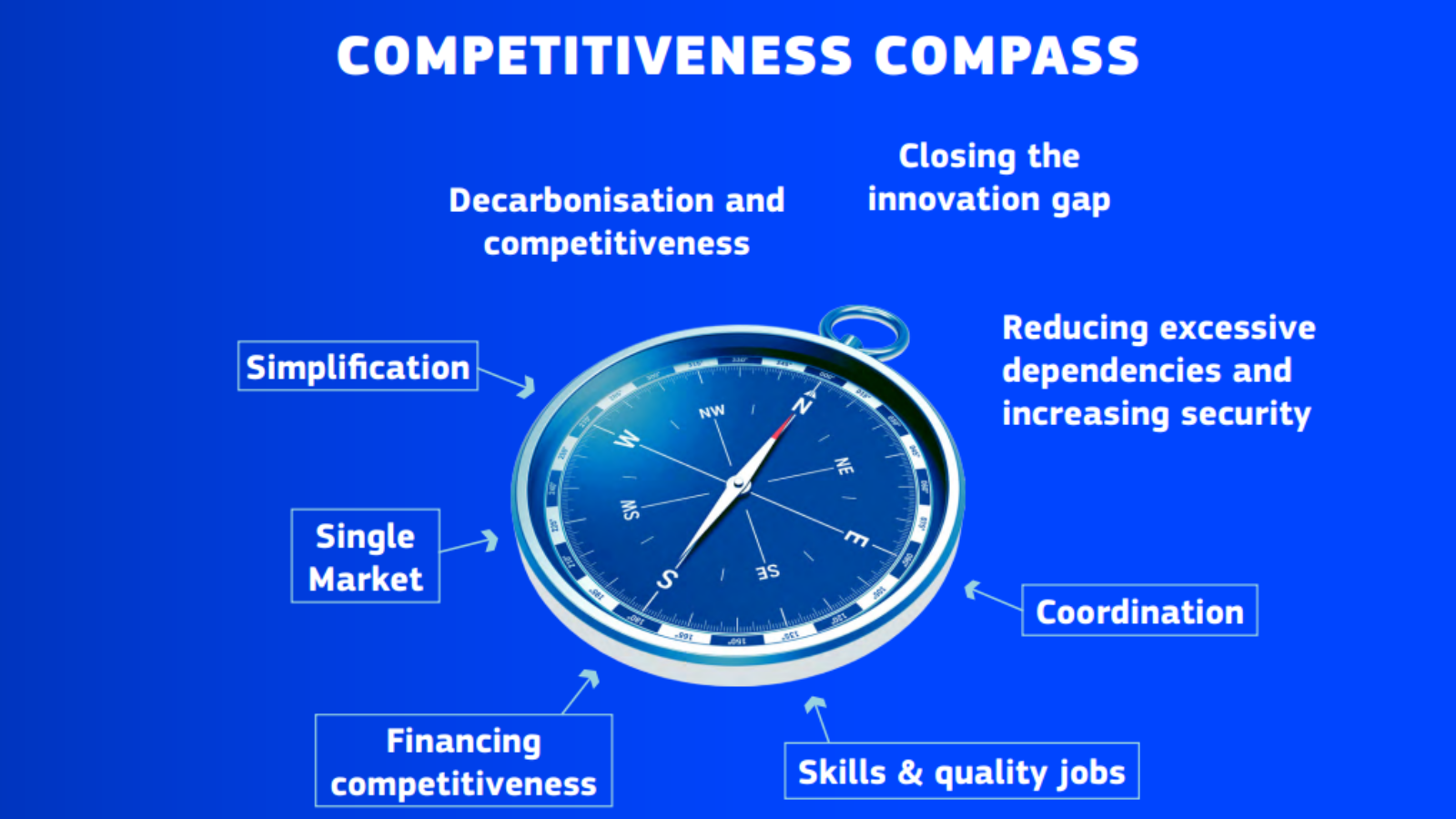The EU Competitiveness Compass is a strategic framework designed to reignite economic dynamism in Europe. It acknowledges Europe’s existing strengths, such as a skilled workforce, a large single market, and a stable legal environment, but emphasises the urgent need to address longstanding barriers and structural weaknesses that have caused the EU to lag behind other major economies in productivity growth and innovation. The Compass aims to guide policy changes and foster new ways of working together to accelerate decision-making, simplify regulations, and overcome fragmentation, recognizing that coordinated national reforms and investments are crucial for success.
Several policy changes are needed for Europe to shift to a higher gear. In some areas, existing policies will need to be upgraded; in others, a step-change is required to adapt to new realities. Another objective of the Compass is to develop new ways of working together to increase the speed and quality of decision-making, simplify our frameworks and rules, and overcome fragmentation.
At its core, the Competitiveness Compass is structured around three transformational imperatives: closing the innovation gap, establishing a joint roadmap for decarbonization and competitiveness, and reducing excessive dependencies while increasing security. These imperatives are supported by horizontal enablers such as simplifying the regulatory environment, fully exploiting the Single Market, promoting skills and quality jobs, and improving policy coordination. The ultimate vision is for Europe to become a global leader in inventing, manufacturing, and marketing future technologies, services, and clean products while maintaining climate neutrality, attracting top talent, and fostering upward convergence between regions.
Science and innovation are critical to achieving the goals of the EU Competitiveness Compass. The Compass highlights the aims to raise R&D spending to 3% of GDP, strategically directed towards high-impact projects and technologies that will drive future economic growth, such as AI, quantum computing, and biotechnology. The EU should foster collaboration between universities, research institutions, and businesses to translate scientific discoveries into marketable technologies. Initiatives like the European Innovation Act and the EU Start-up and Scale-up Strategy can play a key role in this. Furthermore, we need to encourage greater risk-taking in research and innovation. This can be achieved by increasing funding for high-risk, high-reward projects and by creating a more supportive regulatory environment for innovative companies.
For more information, please refer to the source page of this document: https://commission.europa.eu/document/download/10017eb1-4722-4333-add2-e0ed18105a34_en
A Competitiveness Compass for the EU
A factsheet on the Competitiveness Compass

